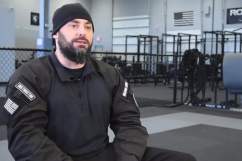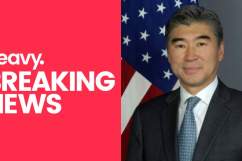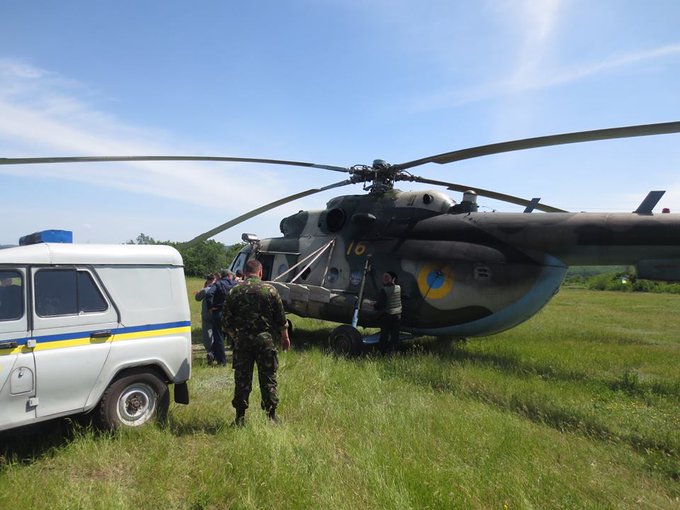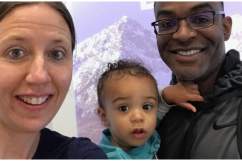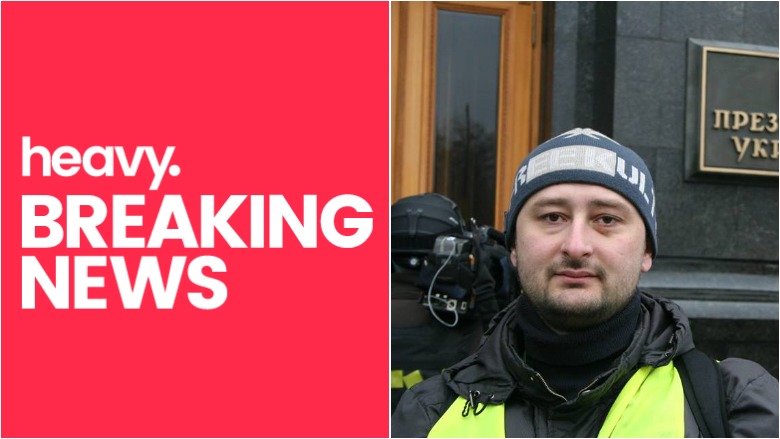
A Russian journalist who has been an outspoken critic of Vladimir Putin and the Kremlin faked his death in an elaborate operation to catch his would-be killer. Arkady Babchenko was believed to have been shot and killed in his Kiev, Ukraine, apartment on Tuesday. But he emerged aliveat a press conference Wednesday where authorities announced that the man ordered to assassinate him had been arrested.
Ukrainian authorities are accusing the Russians of trying to have Babchenko killed. His death was widely reported in Ukrainian and Russian media on Tuesday and the story spread across the world, with government officials from the two countries blaming each other for his murder.
Babchenko, a 41-year-old former Russian soldier turned war correspondent, was left Russia for Ukraine in February 2017, saying he had received threats and was concerned he could be arrested and has been working as a presenter for Ukraine’s ATR TV. Babchenko was one of Russia’s most well-known war correspondents and in recent years spoke out about Russia’s actions in Syria and eastern Ukraine, often criticizing the government, according to the BBC.
Here’s what you need to know about Arkady Babchenko:
1. A Fake Photo of a Bloody & Supposedly Dead Babchenko Circulated on Social Media & Police Said He Had Been Shot 3 Times in the Back
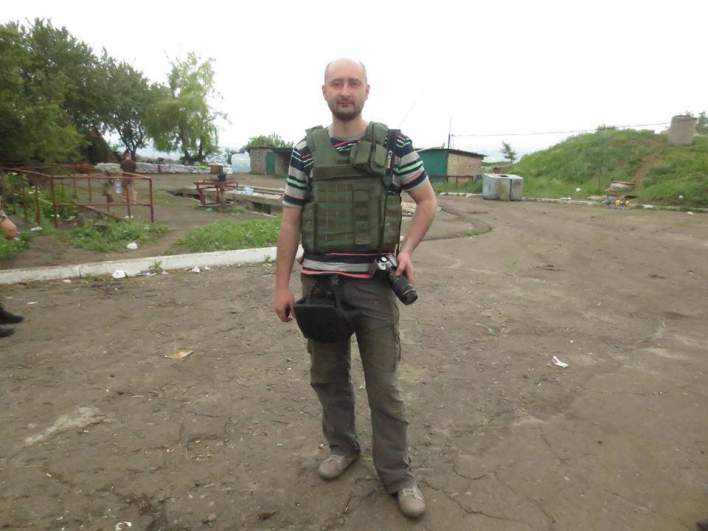
Arkady Babchenko.
Polcie said Arkady Babchenko was shot three times in the back near the entrance to his apartment in Kiev, Ukraine, after returning home from the store, where he had gone to buy bread, The Guardian reports. His wife said she was in the bathroom during the shooting and came out to find Babchenko in a pool of blood. Babchenko was pronounced dead in an ambulance en route to the hospital. A photo taken by Babchenko’s wife shows the war journalist face down on the ground of his apartment, with blood pooling around his head and on his back. But authorities now say that was all staged.
After news reports about his death, police confirmed he had been shot and said it was believed he was targeted, likely because of his work as a journalist. Ukrainian lawmaker Anton Gerashchneko told the BBC the killer waited for Babchenko near his apartment and then assassinated him from behind. “When Arkady opened the door of his flat, the killer cowardly shot him in the back, firing several shots,” the politician wrote on Facebook. It is not clear if Gerashchneko was aware the death was faked.
Police released a sketch of a suspect:
Ukrainian authorities said at a press conference announcing Babchenko’s supposed death that they believed his work as a journalist had made him a target. A day later, security officials said they received advance warning of a planned assassination attempt and decided to set up a sting. The Ukrainian security service said they wanted to gather evidence of terrorist activity by Russian special services in Ukraine, according to CNN. The plan was in place for more than a month, The Guardian reports.
Ukrainian officials said Russian authorities recruited a former fighter in east Ukraine to kill Babchenko by offering $30,000. Further details of the investigation and how Babchenko faking his death helped catch the would-be killer have not been made public.
A neighbor told local media that the killer likely used a silencer, since they heard no shots, but it now appears that was because Babchenko was never killed.
The reaction to the reports of Babchenko’s apparent death came quickly.
Harlem Desir, a media freedom representative for the Organization for Security and Cooperation in Europe (OSCE), tweeted, “Horrified by report that well-known Russian journalist Arkady Babchenko was shot and killed in his home in #Kyiv. I call on #Ukraine authorities to conduct immediate & full investigation. My thoughts are with journalist’s family.”
According to The Guardian, “The killing was the most recent murder of a high-profile dissident in Kiev, a city that has become a refuge for some of Moscow’s most vehement critics, as well as the scene of targeted assassinations that have remained unsolved for years.”
Gerashchenko, the Ukrainian lawmaker, said investigators will look at “Russian spy agencies.” He added, “Putin’s regime takes aim at people whom it’s impossible to break or intimidate.”
Meanwhile, a Russian lawmaker, Yevgeny Revenko, said in comments on the state-run TV agency RIA Novosti, “Ukraine is becoming the most dangerous country for reporters. The Ukrainian government can’t guarantee basic freedoms,” according to The Guardian.
In 2016, a car bomb killed journalist Pavel Sheremet in Kiev. That case remains unsolved and “some journalists have claimed that Ukraine’s powerful intelligence agency has sought to stifle the investigation,” The Guardian reports. Other critics of the Kremlin have been killed in Kiev in recent years, including the car bomb death of Amina Okuyeva, an ethnic Chechen fighter in October 2017 and the shooting of Russian lawmaker Denis Voronenkov in March 2017, according to The Guardian.
Ukrainian Prime Minister Volodymyr Groysman called Babchenko, a “true friend of Ukraine, who was telling the world about Russian aggression,” according to the BBC. Groysman added, “the killers should be punished.” The Russian foreign ministry offered condolences to Babchenko’s family in a statement and said, “We demand that the Ukrainian authorities make every effort to promptly investigate.”
2. He Served in the Russian Army During the Chechen Wars in the 1990s & Then Became a Combat Journalist for Russian Media Outlets
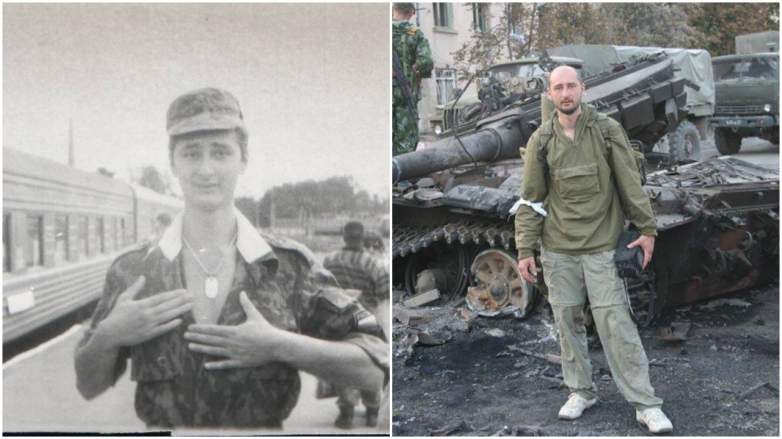
Arkady Babchenko.
Arkady Babchenko was born March 18, 1977, in Moscow. While studying law as an 18-year-old, he was conscripted into the Russian army and served during the Chechen wars from 1994 to 2000. After leaving the military, he became a war correspondent, working for Moskovsky Komsomolets and Zabytyi Polk. He chronicled his experiences in the military in a memoir, “One Soldier’s War,” published in 2006. He graduated from the Modern Humanitarian University with a degree in international law.
Babchenko stopped working as a journalist for several years, becoming a taxi driver, but returned to war reporting in 2009 for the newspaper Novaya Gazeta, covering the South Ossetia war. Babchenko was also the founder of “Journalists Without Middlemen,” and continued writing books about his military experiences, winning several literary awards. Babchenko was additionally a freelance writer for several foreign outlets, including the BBC and The Guardian about conflicts in Ukraine and Syria, as well as Russian and Eastern European politics.
3. Babchenko Apologized to His Wife, Family & Friends for Faking His Death
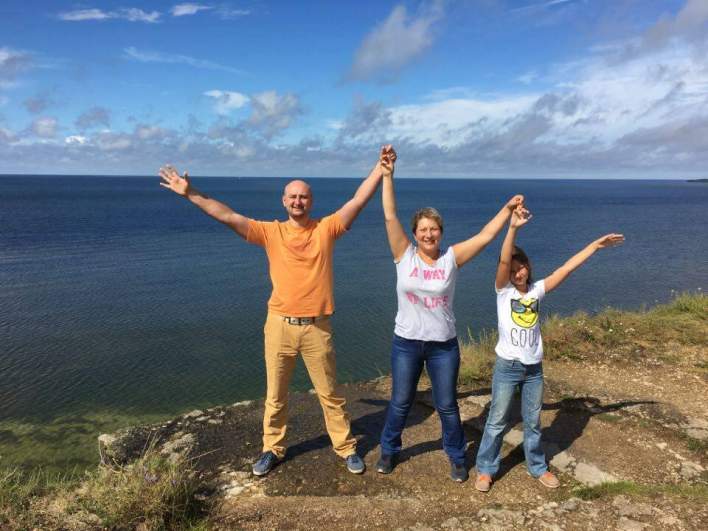
Arkady Babchenko with his wife and daughter.
Babchenko is married to Olechka Kashaikina, and has a young daughter, Yekaterina Babchenko. His Facebook profile shows several happy photos with his family together, including on several trips.
At the press conference Wednesday, Babchenko apologized to those who thought he had been killed. “I have been forced to bury my friends and colleagues many times and I know the sickening feeling,” he said at the press conference. He said his wife and close family members were not in on the plan.
“Special apologies to my wife, Olechka, there was no other option,” Babchenko said at the press conference. “The operation was under preparation for two months. I’ve done my work. I’m still alive for the moment.”
In August 2017, Babchenko told Haaretz he had wondered what led him “to go from one hell hole to another” instead of having a normal life with his family, without war and not as a refugee.
According to Haaretz, Babchenko wrote on LiveJournal, where he published some of his work, in his intro about himself, “I’m an old, balding whippersnapper with a big nose, two meters [six feet two inches] tall. Weight – 100 kilos. I’ve never had hair and I have no idea what shampoo is. I wash my pate with laundry soap mixed with pesticide. My back, with a cheese grater. I brush my teeth with a ramrod for a 9 mm rifle. Smear synthetic diesel oil on it. Pluck my eyebrows with pliers I stand out for my intellect and resourcefulness. That’s why I served in the army twice. That’s why I served in the army twice.”
4. He Left Russia in February 2017 Saying It Was ‘a Country I No Longer Feel Safe In’
Arkady Babchenko left Russia in February 2017, saying at the time his native land was “a country I no longer feel safe in.” He and his family first moved to the Czech Republic and then on to Israel before settling down in Kiev, where he worked for the Crimean broadcaster ATR. In his most recent writing, Babchenko was critical of the Kremlin, especially the annexation of Crimea and its support of separatist insurgents in eastern Ukraine, along with the Russian campaign in Syria.
He said he fled Russia after receiving threats about a December 2016 Facebook post in which he said he felt no regret over the deaths of a military choir and other passengers on a Russian plane that crashed while en route to Syria. In the post, he called Russia an “aggressor.” Babchenko had previously been critical of Russia’s role in the Syria conflict. He said after that post, he received threats, his home address was published and some called for him to be stripped of his Russian citizenship.
“I didn’t call for anything or insult anyone. I just reminded my readers that Russia was indiscriminately bombing Aleppo, without recognising that dozens of children were dying in those bombs, their photographs making their way around the world. I also called Russia an aggressor,” Babchenko wrote in The Guardian about the reaction to his “unpatriotic post.” He added, “After all these wars and deaths, I felt only one thing when I heard that the representatives of Russia’s military had died: indifference. But for some, expressing this on Facebook was not patriotic enough. And so it began.”
He was listed as number 10 on a list of “Top 100 Russophobes,” by Tsargrad, “pro-government ultranationalist” TV network, he wrote in The Guardian, and he received several threats to his life. “My home address has also been published on the internet, together with an invitation ‘to visit’ I have received threats to me and my family by the thousand – in my email inbox, on Facebook and by phone,” he wrote.
Babchenko wrote on Facebook in 2017, “There is an informed opinion that it would be a good idea for me to live outside our god-protected Motherland for a while.”
5. Babchenko’s Last Social Media Post Before the Death Hoax Was About Narrowly Escaping Death 4 Years Ago When a Helicopter Was Shot Down
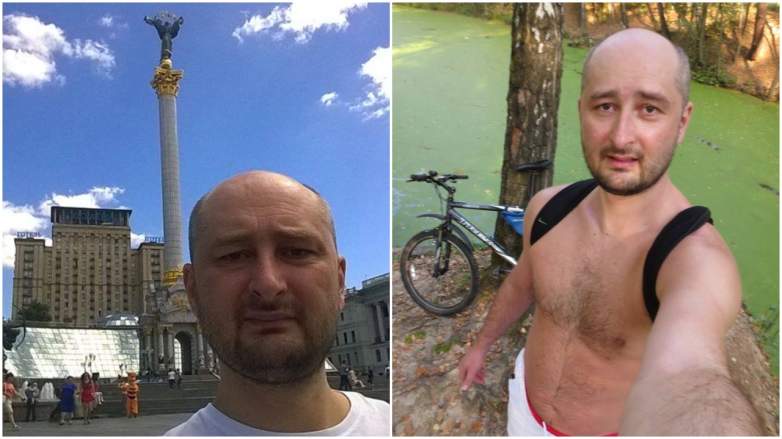
Arkady Babchenko.
In his last tweet and Facebook post prior to faking his death, Arkady Babchenko wrote about escaping death on May 29, 2014. Babchenko had tried to get on an Ukrainian helicopter in along the front line in eastern Ukraine that was then shot down. He wrote, “Four years ago General Kulchitsky wouldn’t take me on his helicopter because there wasn’t the space. It was shot down two hours after this photograph. 14 people died, but I got lucky. It’s a second birthday for me.” He tweeted the link with a photo of the helicopter:
Babchenko had also recently tweeted and posted on Facebook and elsewhere on social media about threats he said he was receiving.
Dmitry Muratov, who founded the Novaya Gazeta newspaper that Babchenko had contributed to, told The Independent, “100 percent this is connected to his journalism. I can’t tell you who did it, but I can tell you we’re going to try to find out.”
